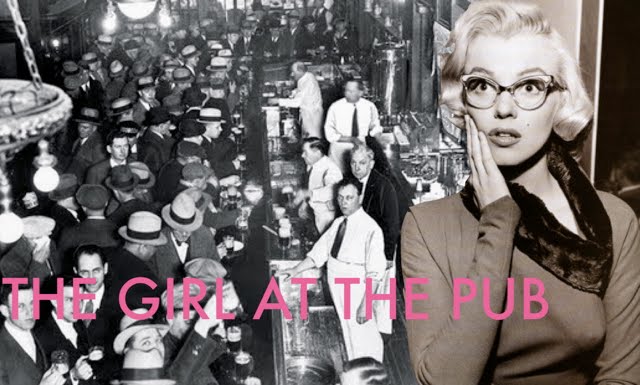At some point during the first half of the friendly against Mexico, Steven Gerrard took a knock on the head. He returned to the pitch with a bandage on his head and a new outlook on life. During the Chelsea v. Liverpool game a couple of weeks ago, I compared him to a mental patient; with roughly-wrapped gauze around his forehead he certainly looked like one. But a liberated one. Gerrard looked like a mental patient who had escaped from the asylum of his season at Liverpool through a very small bathroom window and thrown his sedatives into the artificial pond as he roared out of the compound. At least until the mania hit, intoxication was guaranteed: with his freedom, with everyday life, with breathing. Alternatively, you might say he looked like a little kid who fell out of bed after a season-long nap. Watch out mummy, he’s mad and he’s ready to play! Take your pick. He was a man resurrected.
I confess that when I started writing this I didn’t know about either Terry Butcher or Paul Ince’s bloody displays. Only the several I’d collected over the past year or so, mainly the stunning ooze of Zhirkov and the accident that sent Carragher on that sartorial journey into black headbands. But I shouldn’t joke: as long as it doesn’t seem too serious, there is nothing that thrills me more than a good head wound on the pitch (obviously an injury like Cech’s is a whole other matter).
Blood draws everyone into the game. It breaks down the boundaries between the viewer and the player in a way that 3D will never be able to. And the players' performances always change, pumped full with a sort of masculine glee. I always study players faces’ when they have a head wound, and I’m convinced they like it. Suddenly, a metrosexual robot morphs into a modern gladiator in front of the whole world, and all his boyhood dreams are fulfilled. Especially Carragher. Always Carragher. I could see him looking out of the corner of his eye at Gerrard’s bandage, overcome with schoolyard jealousy, wondering if he could throw himself headfirst into the goalpost to get his own.
Blood draws everyone into the game. It breaks down the boundaries between the viewer and the player in a way that 3D will never be able to. And the players' performances always change, pumped full with a sort of masculine glee. I always study players faces’ when they have a head wound, and I’m convinced they like it. Suddenly, a metrosexual robot morphs into a modern gladiator in front of the whole world, and all his boyhood dreams are fulfilled. Especially Carragher. Always Carragher. I could see him looking out of the corner of his eye at Gerrard’s bandage, overcome with schoolyard jealousy, wondering if he could throw himself headfirst into the goalpost to get his own.
Gerrard’s performance was energetic from the beginning of the game but the bandage brought his contribution up to a whole other level. (Yes, he shift from the left into the center helped too. Gave him the room to orchestrate the link up play and re-establish his connection with Rooney.) And what a delight it was to see him running madly about, tearing up the midfield, tackling and tumbling. Even if Capello has resolved the famous morass that is the Gerrard/Lampard midfield, Gerrard must have savored the chance to roam free in Lampard’s absence.
I’m not sure what it is about Gerrard that makes me want to throw him into fictional scenarios, the TARDIS of my brain, and position him as a series of masculine archetypes, but it’s happened consistently since the first I saw him play. No matter how you feel about him as a player, or a person, or a Phil Collins fan, it’s impossible to deny that the man lends himself to myth. In the beginning I was fascinated with his hair. R. must have told me that Gerrard was a Liverpool boy who actually played in LIverpool, and I recall immediately imagining him sitting at his mother’s kitchen table in a scene I think I stole from “Hope & Glory.” Mum forcing him to finish the rhubarb custard so she could wash the bowl it was in, flip it over, put it over Gerrard’s head, and trim his hair around it. I could not believe that he was paying money to have his hair cut like that. Unless he was paying someone to specifically make it look like his mother cut it, which is a level of genius that is beyond my comprehension. I can still see the wallpaper in the kitchen I imagined for him: little faded yellow roses, water stains, peeling corners.
I certainly can’t fathom what Gerrard means to the English; I wouldn’t even try. All I can attempt, as an American, is to think about what he seems to mean to the English (and what he means to me, in my relationship to them). He seems to me not to represent the English as much as telegraph their state of mind. When Gerrard frets, does he frets for all of England? In this game, by breaking through the self-reflexive paralysis of the Liverpool season and escaping beyond the patterns of light, the intellectual contusions of the tactical exercise he was embedded in, Gerrard reminded his country that he would shed public blood for them, too. You know, for he today that sheds his blood with shall be my brother. And all that.
POSTSCRIPT: This World Cup has been a hotbed of blood and bandages. The topic really deserves its own post. But I do want to note that while Pique seemed to bleed too much, ostentatiously, as though he was auditioning for a Goya painting, Clint Dempsey bled just enough, and kept moving down the field.


No comments:
Post a Comment